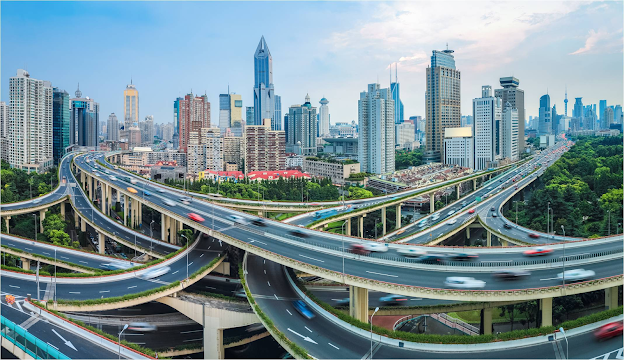
Cities have always been centers of innovation and progress. With the growth of technology and its integration into our daily lives, we are witnessing a new wave of innovation that is changing the way cities operate. Smart cities are already right next to us.
In this article, we will explore how technology transforms urban life, offering a more sustainable, efficient and connected future.
What is a smart city?
A smart city is an urban space that uses technology and data to improve the quality of life of its citizens. This technology relies on sensors, data analytics and machine learning to optimize everything from traffic flow to waste management. Smart cities integrate technology into every aspect of urban life, creating a better equipped, more sustainable and efficient urban area to meet the needs of its citizens.
How is technology changing transportation?
One of the most important ways technology changes cities is transportation. smart cities; uses technology to optimize traffic flow, reduce congestion and improve public transport. For example; Cities such as Barcelona, London and Singapore have implemented smart traffic management systems that use data to optimize traffic flow and reduce congestion.
Smart cities also include connected and efficient public transport. With the implementation of connected systems, real-time information flow about public transport is provided, thus reducing waiting times.
Another way technology is changing transportation is through the use of autonomous vehicles. Smart cities are already preparing the way for autonomous vehicles that can reduce traffic accidents, congestion and carbon emissions. For example; Waymo, a Google-owned autonomous vehicle company, has been testing self-driving taxis in Arizona since 2018.
How does technology increase energy efficiency?
Energy efficiency is a major concern for cities that consume significant amounts of energy. Smart cities use technology to optimize energy consumption and reduce waste. For example; smart lighting systems can reduce energy consumption by up to 80% by adjusting lighting levels according to occupancy and ambient light levels. Smart cities also reduce energy consumption by up to 20% through sensors and data analysis to optimize heating and cooling systems in buildings.
Another way technology can improve energy efficiency is through the use of renewable energy sources. Smart cities are implementing renewable energy systems such as solar panels and wind turbines to reduce reliance on non-renewable energy sources. For example; Copenhagen is investing heavily in renewable energy sources such as wind turbines and solar panels, with its goal of being carbon neutral by 2025.

How does technology increase public safety?
Public safety is among the most important issues for cities. smart cities; It uses technology to improve public safety by providing real-time information about crime, accidents and emergencies. For example; Cities like London and New York have implemented CCTV systems that can detect and prevent crime. Smart cities also rely on data analytics to predict and prevent accidents. For example; Singapore is an example of a city that uses data analytics to predict traffic accidents and take preventive measures before they happen.
How is technology creating connected communities?
Finally, technology creates connected communities in smart cities. Citizens living in smart cities use technology to stay connected with each other and with city services. For example; Cities such as Amsterdam and Stockholm have implemented smart city applications that allow access to real-time information about public transport, events and city services.

Another way technology creates connected communities is through the use of social media. Smart cities leverage social media to interact with citizens, promote community events, and share information about city services.
Smart cities are the future of urban life and technology is at the center of this transformation. smart cities; create a more sustainable, efficient and connected future by using technology to optimize transportation, energy consumption, public safety and community engagement. While there are challenges that need to be addressed, such as privacy concerns and accessibility, the benefits of smart cities are undeniable. As we continue to integrate technology into our daily lives, the possibilities for smart cities are endless and the future of city living looks brighter than ever.



0 Comments